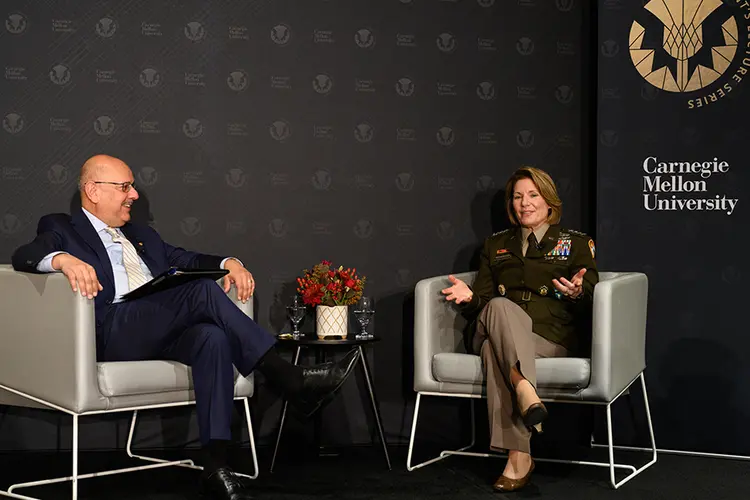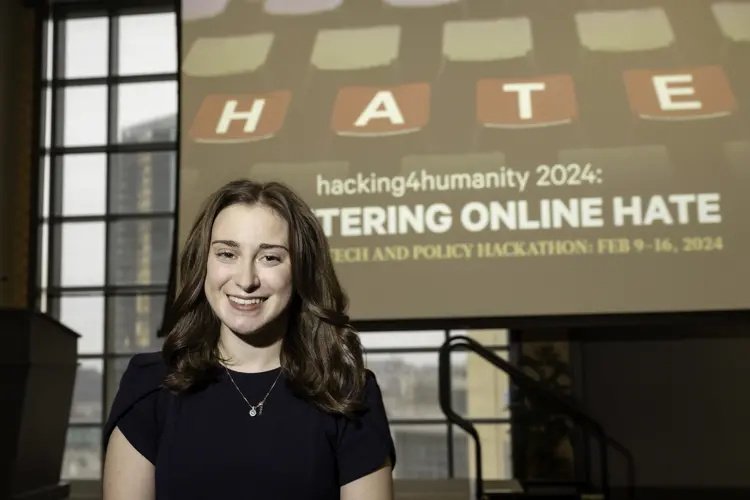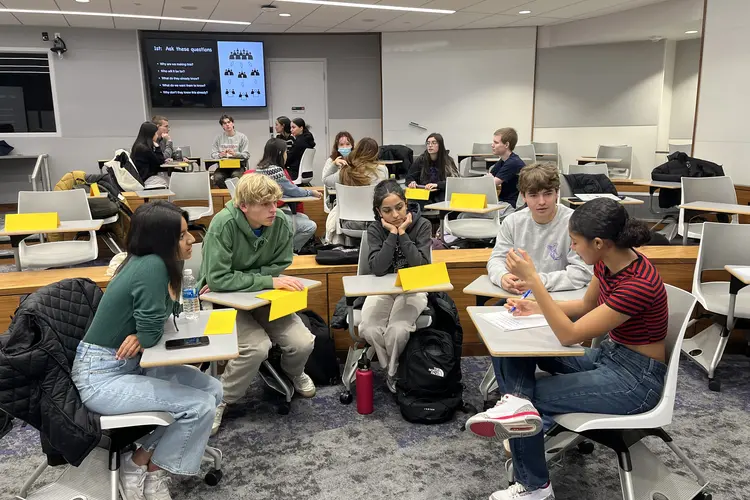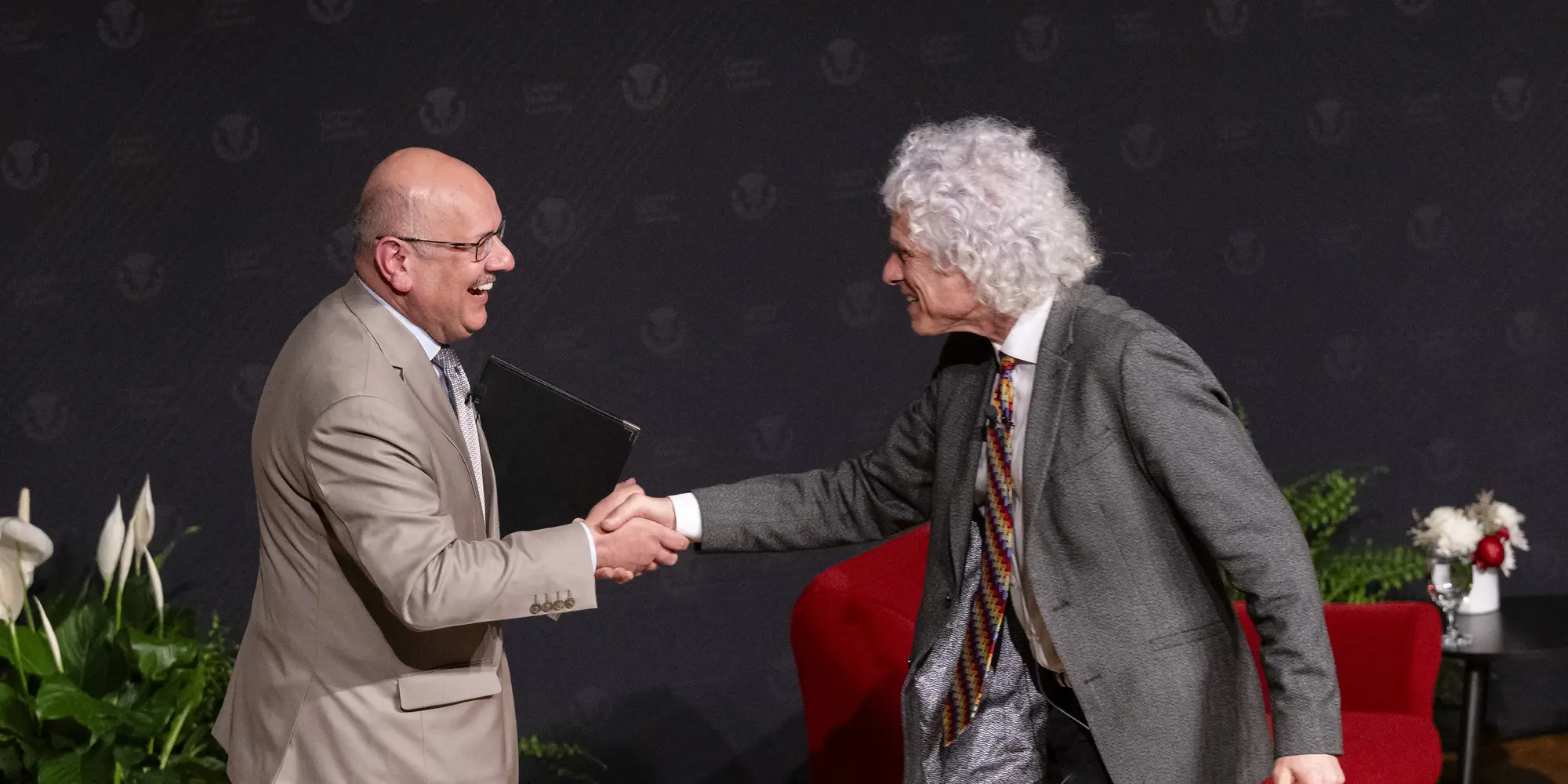
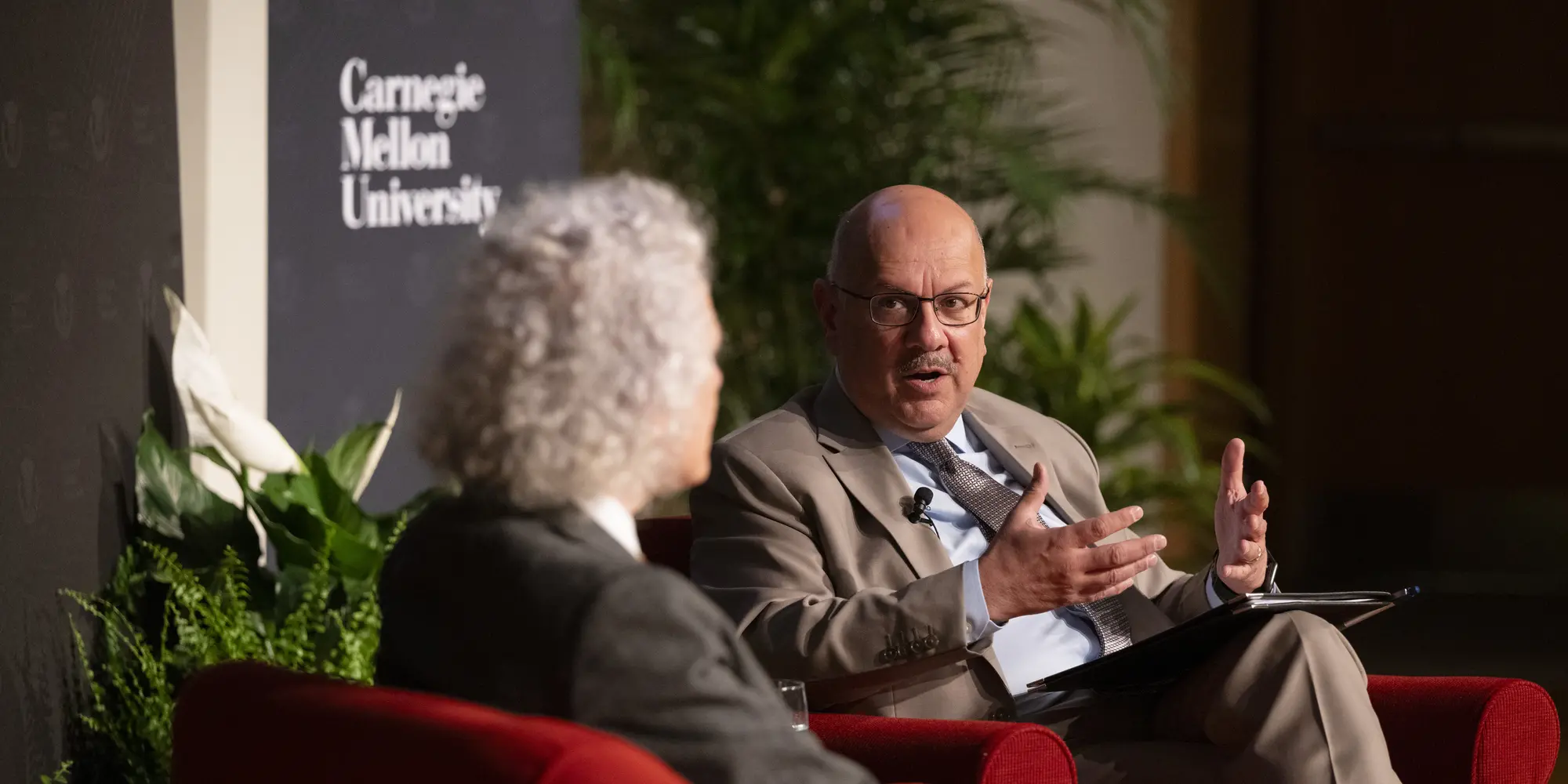
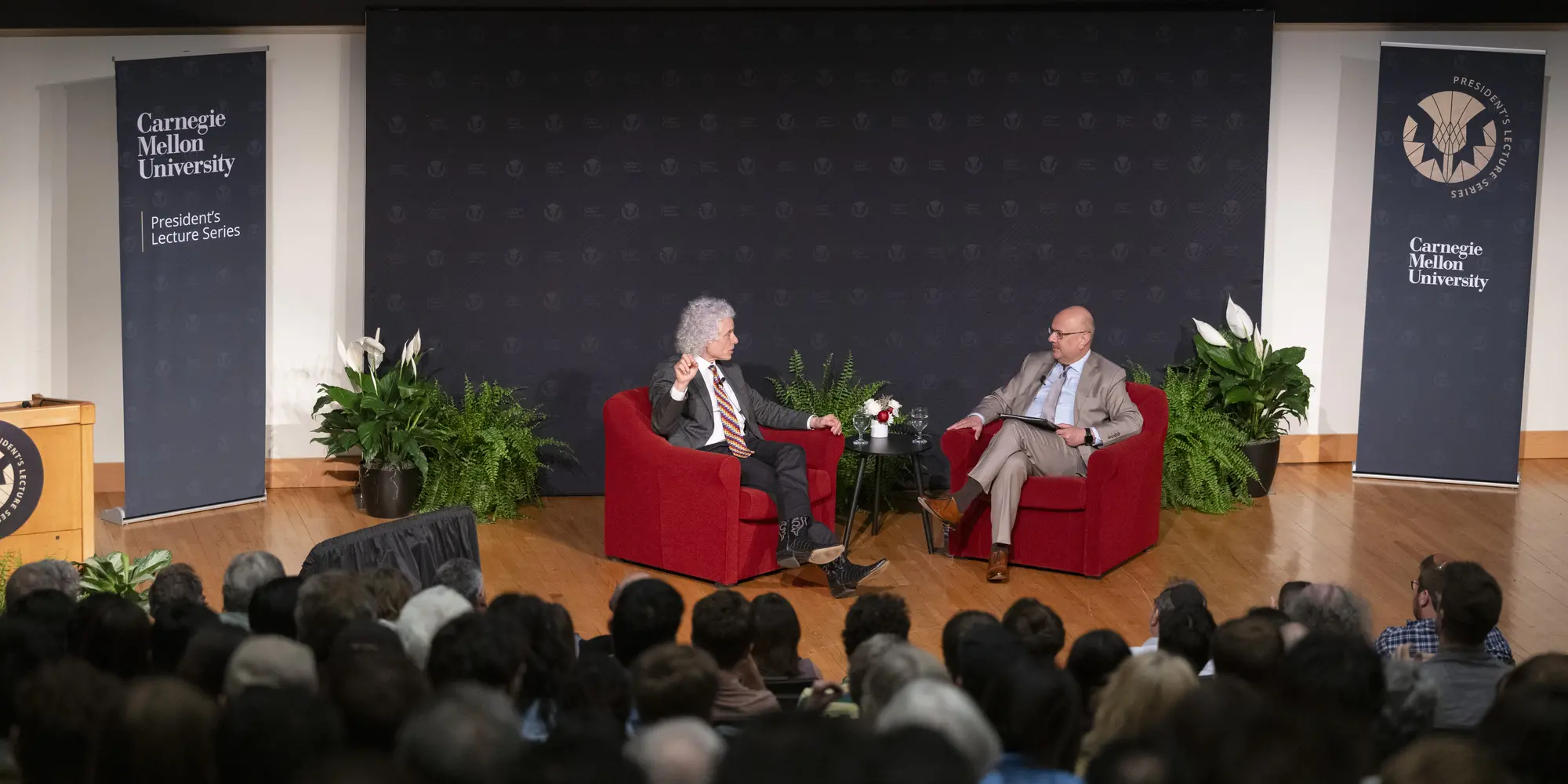
President’s Lecture Series Promotes Civil Discourse in Higher Education
Media Inquiries
Harvard University professor and experimental cognitive psychologist Steven Pinker visited Carnegie Mellon University on April 17 for the second installment of the President's Lecture Series(opens in new window). Pinker is a frequent contributor to the New York Times, the author of 12 books and numerous articles in his fields of expertise, a two-time Pulitzer Prize finalist and one of Foreign Policy's Top 100 Public Intellectuals. The discussion was held in the McConomy Auditorium on the first floor of the Cohon University Center.
This topic of the lecture was "Human Rationality and Academic Freedom," after which Pinker and Jahanian discussed human intuition and rationality, academic freedom, and ways to promote public trust in universities.
The President's Lecture Series builds on the University Lecture Series(opens in new window) by inviting distinguished experts from the public and private sector to speak directly with CMU President Farnam Jahanian(opens in new window) and the CMU community on key societal issues. The series seeks to create opportunities for students, staff and faculty to directly connect with these thought leaders, ask questions and promote learning across disciplines.
"The importance of these conversations is immense," President Jahanian said in his opening remarks. "CMU’s mission is to create and leverage knowledge to benefit society, while at the same time we’re developing the next generation of scholars and thought leaders and practitioners. In an increasingly divided world, fulfilling this mission requires us to take on the challenging task of considering various perspectives and even opposing viewpoints. In fact, the work of supporting and modeling these conversations is precisely the role that higher education can and should play in this world."
The event began with a short lecture from Pinker, which covered the concept of human rationality, various kinds of logical fallacies and the situations in which they frequently occur. From this, Pinker moved the discussion into the important role that universities play as rationality-promoting institutions, whose objectivity and credibility should be safeguarded.
Following the lecture, Jahanian invited Pinker to join him for a fireside chat, where they discussed the ways in which universities have, can and should foster this credibility. Jahanian and Pinker engaged on the topic of academic freedom and ways to overcome the apparent growing tension between freedom of speech and inclusivity.
"I think what we need to do is create an environment such that members of our community can come together, have civil discourse, talk, disagree and hopefully over time build some bridges of understanding to overcome some of these complex issues," Jahanian said.
Pinker also discussed his previous visits to CMU and its role as a historically significant institution in his field, prompting him to apply for graduate school in the 1970s, though he did not ultimately pursue studies at the university. "It had the reputation, even then, as one of the sources and hothouses of cognitive psychology."
Pinker made mention of the work of Herbert Simon, who served as Richard King Mellon University Professor of Computer Science and Psychology for nearly 40 years. He explained how Simon — who interviewed him during the application process in 1976 — left a lasting impression on him.
"He had basically invented cognitive psychology and artificial intelligence," Pinker said. "And he said something that struck me as completely odd. He said, 'Psychologists spend far too little time replicating basic results. We should have every one of our graduate students, as a kind of first-year project, try to replicate a classic finding in psychology.'
"I thought, 'What are you talking about? What a waste of time.' Well, of course, 40 years later, psychology had to face the replicability crisis," Pinker recalled.
Jahanian then asked Pinker about the notion that now is the best time to live in all of human history. Pinker stressed that, despite various struggles and setbacks over the past few decades, rationality and the ability for society to reach conclusions through conjecture and refutation has allowed humanity to progress.
"Laws of nature try to grind us down. It's only through the application of rationality, I argued, that people recognize a problem and they try to solve it. Every once in a while, they succeed," Pinker said, referencing his most recent book, “Rationality: What It Is, Why It Seems Scarce, Why It Matters."
Pinker is the second guest to have visited the university for a discussion in this series. The first was held on Thursday, Sept. 28, 2023 between Jahanian and Gen. Laura Richardson, the first woman to serve as combatant commander in the U.S. Army.

